Boards & Faculty
For more than 40 years, the University of Notre Dame has been one of the best places in the world to conduct research in the philosophy of religion. Below are profiles of Notre Dame faculty members who have published extensively in philosophy of religion (or who have serious research interests in that subject) and who have participated, to varying degrees, in the activities of the Center.
Executive and Advisory Boards
Overseeing the numerous activities of the Center for Philosophy of Religion are the co-directors of the Center. The current co-directors are Michael C. Rea, Rev. John A. O'Brien Professor of Philosophy at Notre Dame, and Laura Frances Callahan, Assistant Professor of Philosophy at Notre Dame.
The Directors are aided by an Executive Board, which consists of members of Notre Dame's Department of Philosophy who specialize in the philosophy of religion. Robert Audi, Richard Cross, Meghan Sullivan, and Ted Warfield are current members of the Executive Board.
In addition, an Advisory Board of distinguished philosophers from outside Notre Dame assists the director. Current members of the Advisory Board are Michael Bergmann (Purdue University), Jeffrey Brower (Purdue University), Susan Brower-Toland (St. Louis University), Andrew Chignell (Princeton University), Oliver Crisp (University of St Andrews), Mark Murphy (Georgetown University), Eleonore Stump (St. Louis University), and Dean Zimmerman (Rutgers University).
Faculty Profiles
Robert Audi
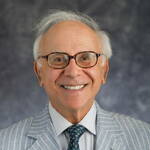
Rev. John A. O'Brien Professor of Philosophy (Ph.D., University of Michigan), whose interests extend to epistemology, ethics, political philosophy, philosophy of action, and philosophy of religion, Audi is the author of numerous articles and books, the most recent of which include The Good in the Right: a Theory of Intuition and Intrinsic Value (2004), Moral Value and Human Diversity (2008), Business Ethics and Ethical Business (2009), and Epistemology: a Contemporary Introduction to the Theory of Knowledge, 3rd ed. (2010); he is currently writing a book on the epistemology of religious belief. He is past president of the Society of Christian Philosophers and the Central Division of the American Philosophical Association.
Laura Frances Callahan

Co-Director of the Center for the Philosophy of Religion and Assistant Professor of Philosophy, whose research interests include questions such as: How are we responsible for our beliefs – especially our moral and religious beliefs? What are the distinctive desiderata for such beliefs (know-how? understanding?), and what does forming these beliefs virtuously involve? How do social roles and interpersonal relationships shape these epistemic responsibilities? And how do such roles and relationships shape our ethical responsibilities? Laura received her Ph.D. from Rutgers University in the spring of 2019 and her B.Phil. from Oxford University in 2015. She is a native Hoosier and received an undergraduate degree in philosophy and math from Indiana University Bloomington.
Therese Cory
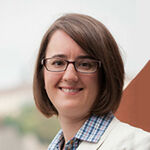
John and Jean Oesterle College Assistant Professor of Thomistic Studies (Ph.D., Catholic University of American), whose research interests include medieval theories of mind, cognition, and personhood, with special focus on the thought of Thomas Aquinas and his thirteenth-century interlocutors. She is also interested in how Islamic philosophers--such as al-Farabi, Averroes, Avicenna, and the author of the "Liber de causis"--shaped Scholastic thought in medieval Christian Europe. Recent publications include Aquinas on Human Self-Knowledge. Cambridge University Press, 2013, “Knowing as Being? A Metaphysical Reading of the Identity of Intellect and Intelligible in Aquinas.” American Catholic Philosophical Quarterly 91 (2017): 333–351 (2016 ACPQ Rising Scholar Award), “Rethinking Abstractionism: Aquinas’s Intellectual Light and Some Arabic Sources.” Journal of the History of Philosophy 53 (2015): 607–646 (2015 JHP Article Prize), and “Attention, Intentionality, and Mind-Reading in Aquinas’s De malo 16.8.” In Aquinas’s ‘Disputed Questions on Evil’: A Critical Guide, ed. Michael V. Dougherty (Cambridge: Cambridge University Press, 2015), 164–91.
Richard Cross

Rev. John A. O'Brien Professor of Philosophy (D.Phil., Oxford University), whose research specializations include mediæval philosophy and theology, and the history of philosophy, Cross has published widely in these areas, including his books Duns Scotus (1999), The Metaphysics of Incarnation (2002), and Duns Scotus on God (2005). He has previously served as the chair of the Department of Philosophy at Notre Dame.
Brian Cutter
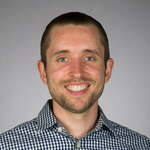
Associate Professor of Philosophy (Ph.D., University of Texas at Austin), whose research interests are primarily in the philosophy of mind and metaphysics. Recent articles include "What is the Consequence Argument an Argument for?" Analysis (forthcoming), "Paradise Regained: A Non-Reductive Realist Account of the Sensible Qualities" Australasian Journal of Philosophy (2017), "Spatial Experience and Special Relativity," Philosophical Studies (2017), and "Pain and Representation," Routledge Handbook of Philosophy of Pain, ed. Jennifer Corns (2017).
Samuel Newlands
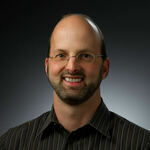
Department Chair and Carl E. Koch Professor of Philosophy (Ph.D., Yale University), Newlands' areas of interest include early modern philosophy, metaphysics, and philosophy of religion. He recently received a fellowship from the National Endowment for the Humanities to work on a monograph entitled Reconceiving Spinoza. Recent articles include "Another Kind of Spinozistic Monism" (2010), "The Harmony of Spinoza and Leibniz" (2010), "The Problem of Evil" (forthcoming), "Spinoza's Relevance for Contemporary Metaphysics and Philosophy of Mind" (forthcoming), and "Spinoza's Modal Metaphysics." He is also the co-editor of Metaphysics and the Good: Themes from the Philosophy of Robert Merrihew Adams (with Larry Jorgensen, 2009).
John O'Callaghan
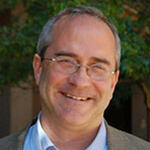
Associate Professor of Philosophy (Ph.D., University of Notre Dame), whose areas of interest include mediæval philosophy, Thomas Aquinas, and Thomistic metaphysics, O'Callaghan is co-editor of Recovering Nature: Essays in Honor of Ralph McInerny (1999). Recent published work includes Thomistic Realism and The Linguistic Turn: Toward a More Perfect Form of Existence (2003), "Neither Robber Barons nor Philosopher Kings: Political Prudence in the Just Polity According to Plato, Aristotle, and Aquinas" (2008), and "The Unity of Nature Now and Then: Aquinas and Hilary Putnam" (2008).
Michael C. Rea
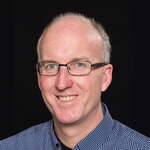
Co-Director of the Center for Philosophy of Religion and Rev. John A. O'Brien Professor of Philosophy (Ph.D., University of Notre Dame), whose areas of interest include metaphysics, epistemology, philosophy of religion, and philosophical theology, Rea has edited Material Constitution: A Reader (1997) and Oxford Readings in Philosophical Theology (2009). He has co-edited Analytic Theology: New Essays in Philosophical Theology (with Oliver Crisp, 2009) and The Oxford Handbook of Philosophical Theology(with Thomas P. Flint, 2009). His published work includes "The Puzzle of Material Constitution" (1995), "Temporal Parts Unmotivated" (1998), "How to Be an Eleatic Monist" (2000), "What Is Pornography?" (2001), World without Design: the Ontological Consequences of Naturalism (2002), and "Material Constitution and the Trinity" (with Jeffrey Brower, 2005).
Blake Roeber
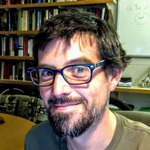
Thomas J. and Robert T. Rolfs Associate Professor of Philosophy (Ph.D., Rutgers University), whose area of interests are primarily in traditional epistemology. He has further research interests in formal and social epistemology. His recent work has focused on the relationship between knowledge and rational action, the nature of belief, the value of knowledge, and related issues. He is also interested in the philosophy of language, the philosophy of mind, the philosophy of religion, metaphysics, and early modern philosophy. Recent articles include "How to Argue for Pragmatic Encroachment" Synthese (forthcoming), "Anti-Intellectualism" Mind (2018), "The Pragmatic Encroachment Debate" Nous (2018), and "Are Intellectual Virtues Truth-Relevant?" Episteme (2017).
James Sterba
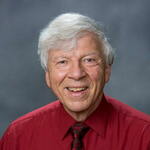
Professor of Philosophy (Ph.D., University of Pittsburgh), whose areas of interests are in ethics, political philosophy, and philosophy of religion. He has published 33 books, and over 200 articles. And he is past president of the American Philosophical Association, Central Division, the North American Society for Social Philosophy, past president of Concerned Philosophers for Peace, and past president of the International Association for Philosophy of Law and Social Philosophy, American Section. He has been visiting professor of philosophy at the University of Rochester and at the University of Lativa in the then Soviet Union on a Fulbright Award. He has also been visiting distinguished professor of philosophy at the University of San Francisco, the University of California at Irvine, and Santa Clara University. Recently. he received a grant from the John Templeton Foundation to do research and run two conferences on bringing the yet untapped resources of ethics to bear on the problem of evil.
Meghan Sullivan
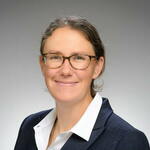
Wilsey Family College Professor of Philosophy and Director of Notre Dame Institute of Advanced Study (Ph.D., Rutgers University), whose areas of interest are in time, modality, rational planning, and religious belief. Sullivan has published work in many of the leading generalist philosophy journals, including Nous, Ethics and Philosophical Studies. Her first book — Time Biases — was published with OUP. Time Biases develops a theory of diachronic rationality, personal identity and rational planning.
Ted A. Warfield
Professor of Philosophy (Ph.D., Rutgers University), Warfield's philosophical interests range widely across analytic philosophy to include epistemology, metaphysics, philosophy of mind, philosophy of religion, and applied ethics. He has co-edited Mental Representation: a Reader (with Stephen Stich, 1994), Skepticism: a Contemporary Reader (with Keith DeRose, 1999), The Blackwell Guide to Philosophy of Mind (with Stephen Stich, 2003), and Disagreement (with Richard Feldman, 2010). His recent published work includes "Divine Foreknowledge and Human Freedom are Compatible" (1997), "Causal Determinism and Human Freedom are Incompatible" (2000), "When Epistemic Closure Does and Does Not Fail: a Lesson From the History of Epistemology" (2004), "Knowledge From Falsehood" (2005), and "Knowledge-Closure and Skepticism" (with Marian David, 2008). He is working on monographs on skeptical arguments and the metaphysics of freedom.
Emeriti Faculty Profiles
Thomas P. Flint
Emeritus Professor of Philosophy (Ph.D., University of Notre Dame) and former director of the Center for Philosophy of Religion, Flint was a Harper Fellow in the Humanities at the University of Chicago prior to returning to Notre Dame. Flint's primary research and teaching interests are in philosophical theology, philosophy of religion, metaphysics, the history of political theory, and Greek drama. His published work centers mainly on divine and human freedom (especially on questions concerning divine providence and the Incarnation). He edited Christian Philosophy (1990) and co-edited, with Eleonore Stump, Hermes and Athena: Biblical Exegesis and Philosophical Theology (1993). His published work includes Divine Providence: The Molinist Account (1998). Recent articles include "A New Anti-Anti-Molinist Argument?" (1999), "A Death He Freely Accepted: Molinist Reflections on the Incarnation" (2001), "The Possibilities of Incarnation: Some Radical Molinist Suggestions" (2001), "The Multiple Muddles of Maverick Molinism" (2002), "Risky Business: Open Theism and the Incarnation" (2004), and "The Basket That Never Was" (2008). He is currently editor of the journal Faith and Philosophy.
Alfred J. Freddoso
The John and Jean Oesterle Professor of Thomistic Studies (Ph.D., University of Notre Dame), Freddoso was a Mellon Postdoctoral Fellow at Brown University from 1977 to 1979. His main interests are in metaphysics, mediæval philosophy, and philosophical theology. He has translated many important works from mediæval philosophy, including Part II of William of Ockham's Summa Logicae (1980), Part IV, "On Divine Foreknowledge" from Luis de Molina's Concordia, along with an introduction (1988), and William of Ockham's Quodlibetal Questions (1991). He also edited The Existence and Nature of God (1983). Recent papers include "Human Nature, Potency and the Incarnation" (1985), "The Necessity of Nature" (1986), "Medieval Aristotelianism and the Case Against Secondary Causation in Nature" (1988), and "Ontological Reductionism and Faith versus Reason: A Critique of Adams on Ockham" (1991). He is currently working on a translation of Thomas Aquinas's Summa Theologica.
Michael J. Loux
Emeritus Professor of Philosophy (Ph.D., University of Chicago), past George Shuster Professor of Philosophy, and past dean of the College of Arts and Letter, Loux's interests include Greek philosophy (especially Aristotle) and metaphysics. He has authored numerous influential works in metaphysics and Greek philosophy, including Substance and Attribute (1978), Primary Ousia: An Essay on Aristotle's Metaphysics Ζ and Η(1991), Metaphysics: a Contemporary Introduction, 3rd ed. (2006), and "Aristotle's Constituent Ontology" (2006). He has edited Universals and Particulars (1970), The Possible and the Actual (1990), and The Oxford Handbook of Metaphysics (with Dean Zimmerman, 2003).
Alvin Plantinga
Emeritus Professor of Philosophy (Ph.D., Yale University), past Reverend John A. O'Brien Professor of Philosophy, and past director of the Center for Philosophy of Religion, Plantinga works in metaphysics, epistemology, philosophy of religion, and philosophical theology. He has written numerous influential books and articles, including God and Other Minds (1967), The Nature of Necessity (1974), God, Freedom and Evil (1974), Does God Have a Nature? (1980), Warrant: The Current Debate (1993), Warrant and Proper Function (1993), Warranted Christian Belief (2000), Knowledge of God (with Michael Tooley, 2009), and a set of Gifford Lectures entitled Science and Religion: Conflict or Concord (forthcoming). Plantinga is past president of the Society of Christian Philosophers and the Central Division of the APA. He is also the 2017 Templeton Prize Laureate.
Peter van Inwagen
Emeritus Professor of Philosophy (Ph.D., University of Rochester), past John Cardinal O'Hara Professor of Philosophy, whose area of interests include metaphysics, philosophy of action, and philosophical theology, van Inwagen is the author of numerous articles and books, including An Essay on Free Will(1983); Material Beings (1990); God, Knowledge and Mystery: Essays in Philosophical Theology (1995); The Possibility of Resurrection and Other Essays in Christian Apologetics (1998); Ontology, Identity, and Modality (2002); The Problem of Evil (2006); and Metaphysics, 3rd ed. (2008). He co-edited Persons: Human and Divine (with Dean Zimmerman, 2007). Van Inwagen is past president of the Central Division of the APA and the Society of Christian Philosophers.
Funding
Funding for the Center has been generously provided by the University of Notre Dame and by grants from the J. Howard Pew Freedom Trust and from the De Rance Foundation.